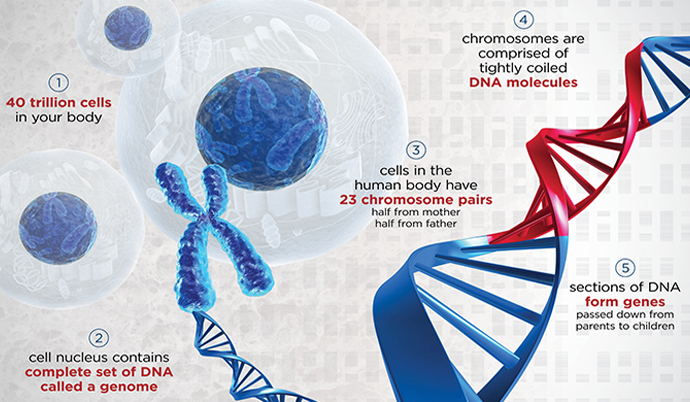Genetic Medicine 101
Your DNA is What Makes You Unique
Your DNA is What Makes You Unique

You are made up of cells. Cells know what to do because of the DNA, your body’s instruction book, inside each cell. The instructions within sections of the DNA – called genes – build, maintain and regulate your body’s functions. The differences that each of us have in the structure of our genes are called variation. This variation makes each of us unique.
Thousands of genes are organized and packaged into units called chromosomes. Humans have 23 chromosome pairs – one of each pair contains genetic information from your biological mother, the other from your biological father.
Finding the correct medication for your body is complicated. Many variables affect each person’s response to medication. And pharmacogenomics— the study of how heredity (genetics and identity) influences your drug response — may help your provider identify the best medication for you.
When you receive your results, please do not stop your medication(s) or make any medication changes before consulting with your provider first. A Sanford pharmacist will contact your provider regarding medication recommendations.
Precision medicine is an approach to disease management that takes into account a person’s environment, lifestyle and genes. At Sanford Health, we utilize precision medicine in clinical care through our physicians accessing information saved in a patient’s electronic medical record following genetic testing for use when prescribing medications or building a care plan.

ImagineYou screens for conditions with an increased risk for certain cancers and heart disease

Eyeris Harbor and his family can stay local for their care across several specialties